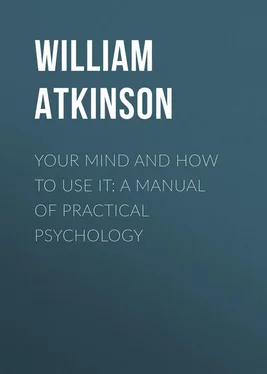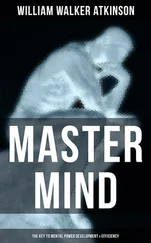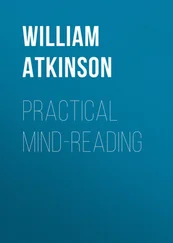William Atkinson - Your Mind and How to Use It - A Manual of Practical Psychology
Здесь есть возможность читать онлайн «William Atkinson - Your Mind and How to Use It - A Manual of Practical Psychology» — ознакомительный отрывок электронной книги совершенно бесплатно, а после прочтения отрывка купить полную версию. В некоторых случаях можно слушать аудио, скачать через торрент в формате fb2 и присутствует краткое содержание. Жанр: foreign_antique, foreign_prose, на английском языке. Описание произведения, (предисловие) а так же отзывы посетителей доступны на портале библиотеки ЛибКат.
- Название:Your Mind and How to Use It: A Manual of Practical Psychology
- Автор:
- Жанр:
- Год:неизвестен
- ISBN:нет данных
- Рейтинг книги:5 / 5. Голосов: 1
-
Избранное:Добавить в избранное
- Отзывы:
-
Ваша оценка:
- 100
- 1
- 2
- 3
- 4
- 5
Your Mind and How to Use It: A Manual of Practical Psychology: краткое содержание, описание и аннотация
Предлагаем к чтению аннотацию, описание, краткое содержание или предисловие (зависит от того, что написал сам автор книги «Your Mind and How to Use It: A Manual of Practical Psychology»). Если вы не нашли необходимую информацию о книге — напишите в комментариях, мы постараемся отыскать её.
Your Mind and How to Use It: A Manual of Practical Psychology — читать онлайн ознакомительный отрывок
Ниже представлен текст книги, разбитый по страницам. Система сохранения места последней прочитанной страницы, позволяет с удобством читать онлайн бесплатно книгу «Your Mind and How to Use It: A Manual of Practical Psychology», без необходимости каждый раз заново искать на чём Вы остановились. Поставьте закладку, и сможете в любой момент перейти на страницу, на которой закончили чтение.
Интервал:
Закладка:
The plain distinction between a sensation and a percept may be fixed in the mind by remembering the following: A sensation is a feeling ; a percept is a simple thought identifying one or more sensations . A sensation is merely the conscious recognition of an excitation of a nerve end; a percept results from a distinct mental process regarding the sensation.
It is of the utmost importance that we develop and train our powers of perception. For our education depends very materially upon our perceptive power. What matters it to us if the outside world be filled with manifold objects, if we do not perceive them to exist? Upon perception depends the material of our mental world. Many persons go through the world without perceiving even the most obvious facts. Their eyes and ears are perfect instruments, their nerves convey accurate reports, but the perceptive faculties of the mind fail to observe and interpret the report of the senses. They see and hear distinctly, but the reports of the senses are not observed or noted by them; they mean nothing to them. One may see many things, and yet observe but few. It is not upon what we see or hear that our stock of knowledge depends, so much as it does upon what we perceive, notice, or observe.
Not only is one's stock of practical knowledge largely based upon developed perception, but one's success also depends materially upon the same faculties. In business and professional life the successful man is usually he who has developed perceptive powers; he who has learned to perceive, observe, and note. The man who perceives and takes mental notes of what occurs in his world is the man who is apt to know things when such knowledge is needed. In this age of "book education" we find that the young people are not nearly so observant as are those children who had to depend upon the powers of perception for their knowledge. The young Arab or Indian will observe more in an hour than the civilized child will in a day. To live in a world of books tends, in many cases, to weaken the powers of observation and perception.
Perception may be developed by practice. Begin by taking notice of the things seen and heard in your usual walks. Keep wide open the eyes of the mind. Notice the faces of people, their walk, their characteristics. Look for interesting and odd things, and you will see them. Do not go through life in a daydream, but keep a sharp lookout for things of interest and value. The most familiar things will repay you for the time and work of examining them in detail, and the practice gained by such tasks will prove valuable in your development of perception.
An authority remarks that very few persons, even those living in the country, know whether a cow's ears are above, below, behind, or in front of her horns; nor whether cats descend trees head first or tail first. Very few persons can distinguish between the leaves of the various kinds of familiar trees in their neighborhood. Comparatively few persons are able to describe the house in which they live, at least beyond the most general features – the details are unknown.
Houdin, the French conjurer, was able to pass by a shop window and perceive every article in it, and then repeat what he had seen. But he acquired this skill only by constant and gradual practice. He himself decried his skill and claimed that it was as nothing compared to that of the fashionable woman who can pass another woman on the street and "take in" her entire attire, from head to foot, at one glance, and "be able to describe not only the fashion and quality of the stuffs, but also say if the lace be real or only machine made." A former president of Yale is said to have been able to glance at a book and read a quarter of a page at one time.
Any study or occupation which requires analysis will develop the power of perception. Consequently, if we will analyze the things we see, resolving them into their parts or elements, we will likewise develop the perceptive faculties. It is a good exercise to examine some small object and endeavor to discover as many separate points of perception as possible, noting them on a sheet of paper. The most familiar object, if carefully examined, will yield rich returns.
If two persons will enter into a contest of this kind, the spirit of rivalry and competition will quicken the powers of observation. Those who have had the patience and perseverance to systematically practice exercises of this kind, report that they notice a steady improvement from the very start. But even if one does not feel inclined to practice in this way, it will be found possible to begin to take notice of the details of things one sees, the expression of persons' faces, the details of their dress, their tone of voice, the quality of the goods we handle, and the little things especially . Perception, like attention, follows interest; but, likewise, interest may be created in things by observing their details, peculiarities, and characteristics.
The best knowledge gained by one is that resulting from his own personal perception. There is a nearness and trueness about that which one knows in this way which is lacking in that which he merely believes because he has read or heard it. One can make such knowledge a part of himself. Not only is one's knowledge dependent upon what he perceives, but his very character also results from the character of his percepts. The influence of environment is great – and what is environment but things perceived about one? It is not so much what lies outside of one, as what part of it gets inside of one by perception. By directing his attention to desirable objects, and perceiving as much of them as is possible, one really builds his own character at will.
The world needs good "perceivers" in all the walks of life. It finds a shortage of them, and is demanding them loudly, being willing to pay a good price for their services. The person who can voluntarily perceive and observe the details of any profession, business, or trade will go far in that vocation. The education of children should take the faculty of perception into active consideration. The kindergarten has taken some steps in this direction, but there is much more to be done.
CHAPTER VII
Memory
PSYCHOLOGISTS class as "representative mental processes" those known as memory and imagination, respectively. The term "representation" is used in psychology to indicate the processes of re-presentation or presenting again to consciousness that which has formerly been presented to it but which afterward passed from its field. As Hamilton says: "The general capability of knowledge necessarily requires that, besides the power of evoking out of unconsciousness one portion of our retained knowledge in preference to another, we possess the faculty of representing in consciousness what is thus evoked."
Memory is the primary representative faculty or power of the mind. Imagination depends upon memory for its material, as we shall see when we consider that faculty. Every mental process which involves the remembrance, recollection, or representation of a sensation, perception, mental image, thought, or idea previously experienced must depend upon memory for its material. Memory is the great storehouse of the mind in which are placed the records of previous mental experiences. It is a part of the great subconscious field of mental activity, and the greater part of its work is performed below the plane of consciousness. It is only when its results are passed into the field of consciousness that we are aware of its existence. We know memory only by its works. Of its nature we know but little, although certain of its principal laws and principles have been discovered.
It was formerly customary to class memory with the various faculties of the mind, but later psychology no longer so considers it. Memory is now regarded as a power of the general mind, manifesting in connection with every faculty of the mind. It is now regarded as belonging to the great subconscious field of mentation, and its explanation must be sought there. It is utterly unexplainable otherwise.
Читать дальшеИнтервал:
Закладка:
Похожие книги на «Your Mind and How to Use It: A Manual of Practical Psychology»
Представляем Вашему вниманию похожие книги на «Your Mind and How to Use It: A Manual of Practical Psychology» списком для выбора. Мы отобрали схожую по названию и смыслу литературу в надежде предоставить читателям больше вариантов отыскать новые, интересные, ещё непрочитанные произведения.
Обсуждение, отзывы о книге «Your Mind and How to Use It: A Manual of Practical Psychology» и просто собственные мнения читателей. Оставьте ваши комментарии, напишите, что Вы думаете о произведении, его смысле или главных героях. Укажите что конкретно понравилось, а что нет, и почему Вы так считаете.












